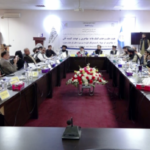In recent weeks, the forced expulsion of Afghan refugees from Pakistan and Iran has once again unmasked the ugly reality of these two countries. It has become evident that foreign nations can never be true allies in the pain, dignity, and values of the Afghan people. For decades, Afghans have fled to neighboring countries out of desperation—escaping war, poverty, and unemployment—in hopes of a better life. Yet, what they encounter there starkly contradicts human dignity, international human rights, and even Islamic principles.
In Pakistan, Afghan refugees face far more than deportation. They are insulted, arrested, humiliated, beaten, their property looted, and even women and children are subjected to abuse. Similarly, in Iran, the border forces have committed some of the gravest human rights violations by killing innocent Afghans simply trying to cross for a piece of bread. These are the very countries that have long spoken of Islamic brotherhood, neighborly cooperation, and solidarity with Afghanistan. Yet today, they have taken on a ruthless, inhumane, and merciless stance against vulnerable Afghan refugees.
Meanwhile, the self-proclaimed champions of human rights and justice—the international organizations and Western powers—have chosen either silence or symbolic, meaningless statements in the face of this suffering, pain, and oppression. It now seems that the hope for justice from the international community, at least for Afghans, is nothing but an illusion. Eyes are closed, ears are deaf, and consciences appear to be dead.
This reality must serve as a wake-up call for the Afghan nation, especially for the refugees being forcefully expelled from foreign countries. The pain, humiliation, and degradation should be enough to convince them that they can no longer look to foreign lands for mercy. Despite the hardships, this is the time to return home, for it is this land that holds our dignity, our roots, and our future.
Yes, there are problems in Afghanistan. Jobs are scarce, the economy is weak, and living conditions are tough. But this land is ours. It is the homeland where our ancestors lived, fought, and built history. No golden palace in a foreign land can match the worth of the dust of our own country.
The responsibility of the Afghan caretaker government has now grown heavier. It must ensure proper reintegration of returning refugees by providing access to jobs, education, healthcare, shelter, and above all, dignity. These returning citizens are the very builders of Afghanistan’s future. If they return only to face neglect, exclusion, and more hardships, it will become a national tragedy.
Moreover, Afghan businessmen, religious scholars, community leaders, civil society activists, and influential figures must unite in voice and action to welcome these returnees, offer them support, and send a clear message: “You have returned to your homeland—no one is a stranger here.”
The history of the Afghan nation is one of honor and resilience. When united, confident, and bound by love for their country, Afghans have overcome the greatest of crises. Today is another moment in that history. We must renew our commitment, embrace our people, and turn this land into a symbol of unity, love, and independence.
Let us stop hoping for mercy from foreign lands. Your homeland awaits you with open arms—come back, reclaim your dignity, and build a life of honor for your children. This land may be dry, but it is ours. It may be difficult, but it is our refuge. It may be poor, but it is free.













